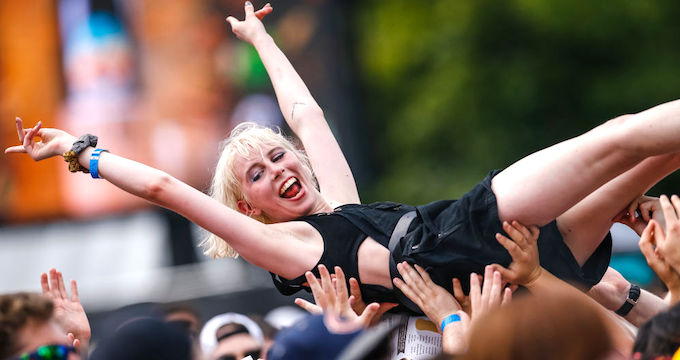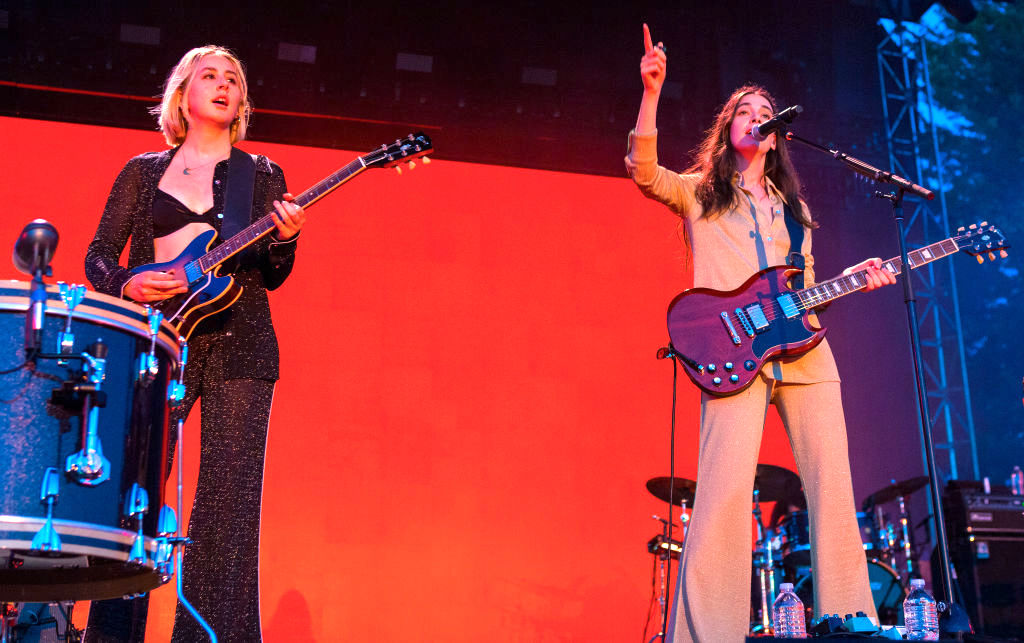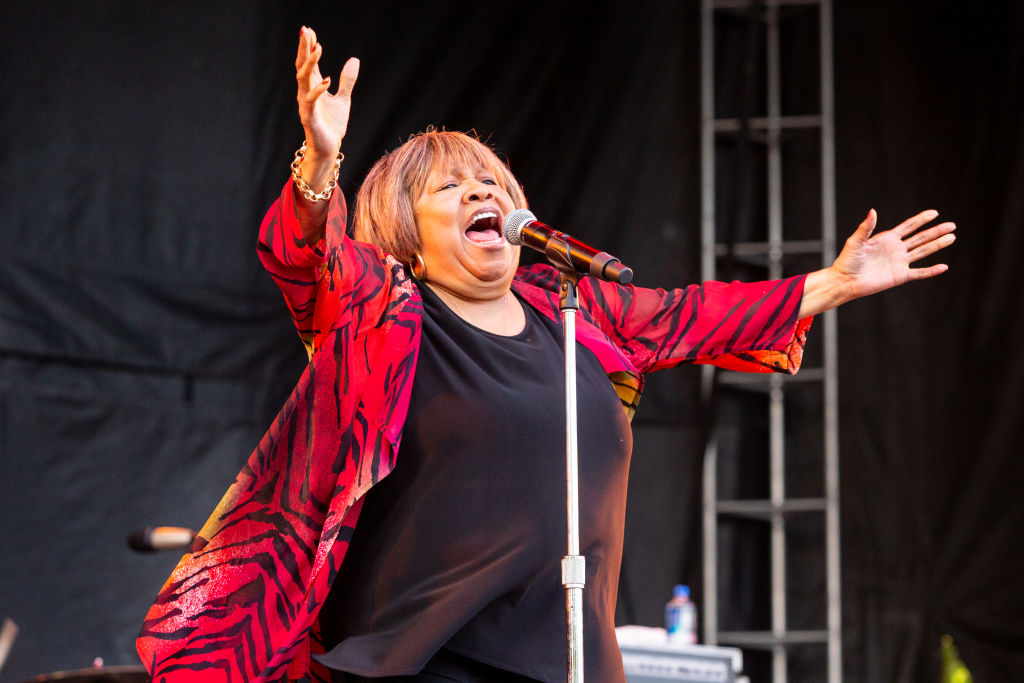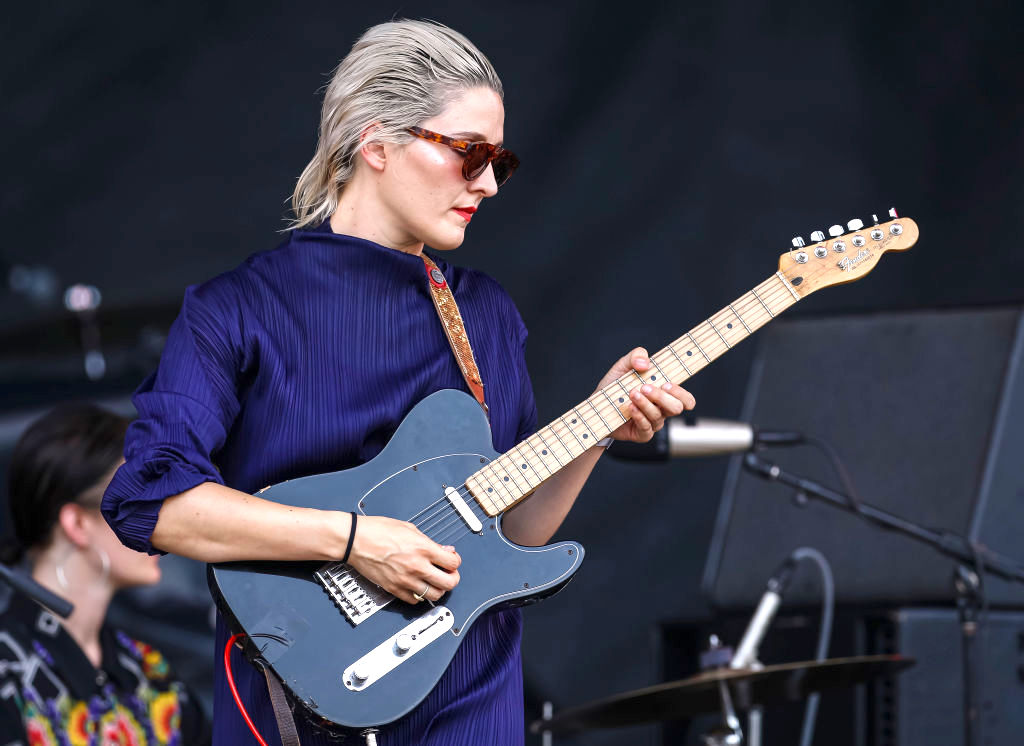
If there’s one take-away from Pitchfork Music Festival this year, it’s the endurance of music fans. Pitchfork attendees happily braved extreme weather for the sake of good music. And that’s what Pitchfork is really all about — the music. Sure, there’s vendors selling (really impressive) artwork and a collection of local record stores and labels providing merch, but Pitchfork’s main focus is the music. Extreme heat and evacuation were just mere hiccups to a weekend of popular indie acts.
Pitchfork, somehow, usually manages to fall on a weekend of unlucky weather in Chicago. Chicagoans are used to unpredictable weather. In a given summer day, the temperature starts with a humid 90 degrees then suddenly drops to 70 as a lightning and rain storm douses the city for a quick 15 minutes.

This year was particularly gruesome. As the opening day drew near, Chicago issued an excessive heat warning, meaning the city suggested people stay indoors or near an AC. The heat wasn’t a deterrence for those wanting to see HAIM or Snail Mail, however. True fans and festival-lovers alike braved the 115-degree sauna of a day to come together and enjoy the music.
And while many gathered to see emerging artists from around the globe, Pitchfork always makes sure to have a solid line-up of local bands at its core. Lala Lala, Tasha, Bitchin’ Bajas, and Ric Wilson are just a few examples of the diversity of talented artists who call Chicago home.
Mavis Staples put it all in perspective. The 80-year-old gospel legend returned to her hometown to grace the crowd with her distinctly deep voice and feel-good songs. Staples has had a history of social consciousness, including marching with Martin Luther King Jr. and crafting music that became an anthem for the Civil Rights Movement. And on Friday, she reminisced over those times on stage, telling the crowd about when she would sing while marching. Staples said sometimes the police would catch up to them and they would get arrested, but they continued to march after being released. Near the end of the set, Staples took some time on stage to address some current issues. “Everything is upside down,” she told the crowd. “We’ve got orange face up in the White House. I used to like oranges.”

Chicago-based band Whitney also had a moment at the festival, gathering an enormous crowd. Much like Mavis Staples, Whitney filled the festival grounds with feel-good tunes fit for a warm summer night. It was a blast to witness Whitney’s lead singer Julien Ehrlich crooning in his uniquely high tenor voice while also playing lead drums, a double-threat that is rare to observe. And with a string and brass section to complete their sound, Whitney took the opportunity to debut several songs off their upcoming sophomore release.
Ahead of Whitney, local band Grapetooth (the side project of a few members of Twin Peaks) set the standard for a high energy set despite the oppressive heat. The band successfully draws on old-school influences like New Order with an upbeat twist, standing in direct contrast with the members’ main gig. Once they got the crowd moving, the Chicago love continued when they brought out local friends from bands like Lala Lala and Ohmme to help them out with a few songs.
Though local acts showed off their talent, the festival also showcased their impeccable booking through artists that rarely play in Chicago. One of the best was Cate le Bon, who took the stage to promote her most recent record, Reward. Le Bon captivated the crowd with her unique voice and commanding stage presence. Pulling mostly from that latest album, le Bon brought two live saxophone players along with her, perfectly setting the tone to her retro alter ego. Not many bands can say they sound as good on stage as their recorded album, but Cate le Bon can claim those rights. Her voice enchanted the festival grounds and left me wishing I had attended her concert the night before.

The transition from Cate le Bon’s tender and melancholy music to another highlight, Parquet Courts, was jarring, but a much-needed pickup. As expected, the distorted and charged guitar riffs were not as audibly strong on a big stage compared to a more intimate concert experience. But they did play all the hits from their first few albums as well as ending on a high note with “Wide Awake,” leaving the audience wanting more of their raucous sound.
Directly after Parquet Courts played their last chord, though, a voice came over the loudspeaker telling all the festival attendees to evacuate. The crowd was confused and angry. Weren’t the giant ominous cloud that cooled down the festival by at least 30 degrees a good thing? Two minutes later, lightning struck and a torrential downpour ensued. Fans took refuge wherever they could find it (I explored a nearby bar), keeping a close eye on Pitchfork’s Twitter to hear news of the festival gates re-opening. Sure enough, only an hour later the gates were open and attendees were standing in line, acting like they didn’t just experience the sky open up in a biblical manner.
But even with evacuations and, later, delayed gate openings, nothing about the weather really got in the way of the fans experiencing great music. There was iconic ’90s French disco outfit Stereolab, playing upbeat pop music lead by an old-school analog synth while affirming why their reunion is considered such a big deal to many. There was Belle & Sebastian, playing the entirety of their 1996 album If You’re Feeling Sinister to an elated audience. And there were rising artists like 20-year-old singer Clairo and Houston-based mellow psych-rock jam band Khruangbin, whose sets seemed to argue for their considerably growing importance.
While enjoying being outdoors in extreme conditions can be a challenge, Pitchfork Music Festival this year will be remembered as a trial by fire for music lovers, one that feels like an accomplishment to have experienced and survived. Though the heat was at times unbearable, the showcase of local and legendary acts reminded that any temperature is worth enduring for the sake of good music.






